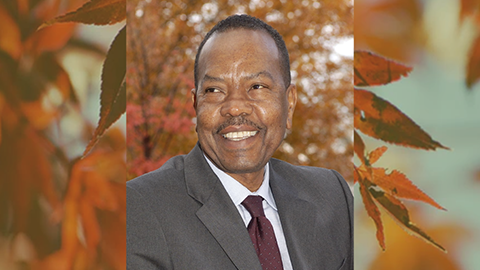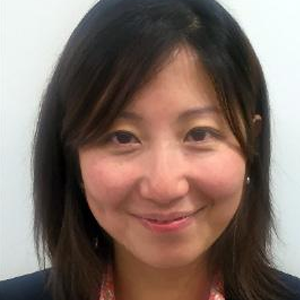Q&A with George Langford
Tell us about yourself.
I am a neuroscientist and serve as the dean of the College of Arts and Sciences at Syracuse University. My research focuses on the cellular mechanisms of learning and memory, specifically how the brain recalls information and how Alzheimer’s and other neurodegenerative diseases impair the process.Prior to Syracuse, I served as dean of the College of Natural Sciences and Mathematics at the University of Massachusetts-Amherst. Prior to that, I was the Ernest Everett Just professor of natural sciences at Dartmouth College and professor of physiology at the University of North Carolina at Chapel Hill.
.png?lang=en-US)
In 1998, I was appointed by President Clinton to the National Science Board, the governing board of the National Science Foundation. I have dedicated my career to increasing minority representation in the sciences by designing and implementing programs to support and mentor minority students. I was honored to be named inaugural chair of the Minority Affairs Committee of the American Society for Cell Biology and the inaugural holder of the Ernest Everett Just professorship ... at Dartmouth College. While in this position, I established the E.E. Just Program to increase the number of minority students in the sciences.
How did you first become interested in science?
In the ninth grade, my chemistry teacher, Mrs. Clark, encouraged me to explore the sciences. She gave me a special project for the science fair on photography. I learned to develop film and print, and this experience piqued my curiosity about the science of photography.
Were there times when you failed at something you felt was critical to your path? If so, how did you regroup and get back on track?
During my early career, I found it difficult to establish a network of collaborators among my peer scientists in the U.S. I succeeded in my goal, however, by working with German colleagues.
What advice would you give to young people from underrepresented backgrounds who want to pursue a career in science similar to yours?
You must maintain excitement for your science. It is incumbent upon you to familiarize yourself with forms of racial discrimination and bias. You should develop strategies. Stay attuned to your goals, and try to understand the roadblocks.
What are your hobbies?
I love music, piano playing and listening to an array of performers. I also love spending time on the beach, playing racquetball, and spending time with my grandchildren.
What was the last book you read?
I recently finished reading Philip Roth’s “Indignation,” published in 2008.
What is it that keeps you working hard and studying science every day?
The excitement of discovery and the ability to contribute to new knowledge. I want to help improve the human condition, specifically through research in the biomedical arena, but especially to enhance our understanding of the neuroscience of learning and memory. I am committed to training the next generation of students and increasing the number of underrepresented students in the (science, engineering, technology and math) disciplines.
Enjoy reading ASBMB Today?
Become a member to receive the print edition four times a year and the digital edition monthly.
Learn moreGet the latest from ASBMB Today
Enter your email address, and we’ll send you a weekly email with recent articles, interviews and more.
Latest in People
People highlights or most popular articles

Building a career in nutrition across continents
Driven by past women in science, Kazi Sarjana Safain left Bangladesh and pursued a scientific career in the U.S.

Kiessling wins glycobiology award
She was honored by the Society for Glycobiology for her work on protein–glycan interactions.

2026 ASBMB election results
Meet the new Council members and Nominating Committee member.

Simcox wins SACNAS mentorship award
She was recognized for her sustained excellence in mentorship and was honored at SACNAS’ 2025 National Conference.

From humble beginnings to unlocking lysosomal secrets
Monther Abu–Remaileh will receive the ASBMB’s 2026 Walter A. Shaw Young Investigator Award in Lipid Research at the ASBMB Annual Meeting, March 7-10 in Washington, D.C.

Chemistry meets biology to thwart parasites
Margaret Phillips will receive the Alice and C. C. Wang Award in Molecular Parasitology at the ASBMB Annual Meeting, March 7-10 in Washington, D.C.

